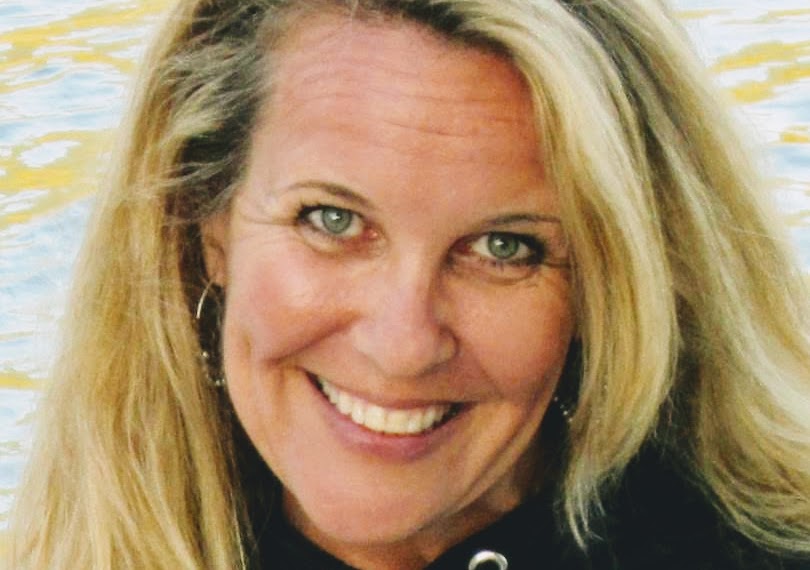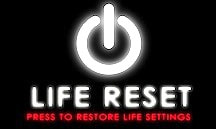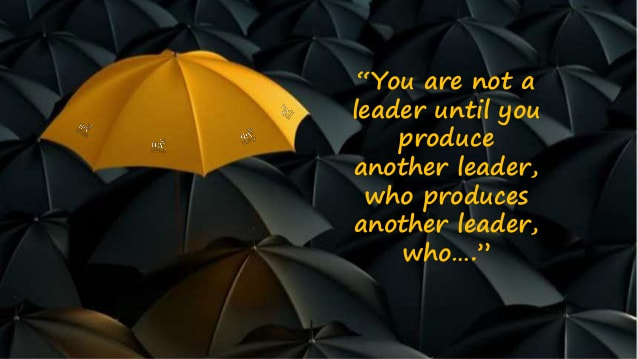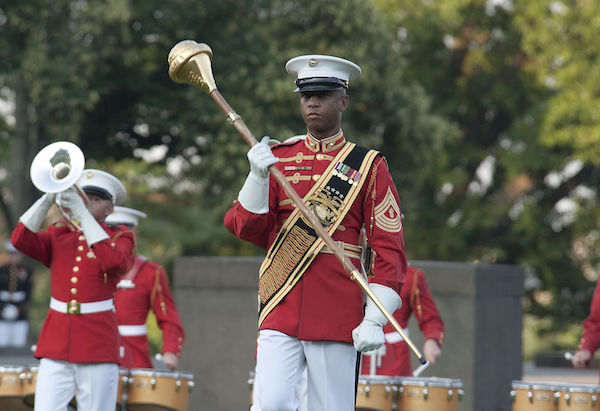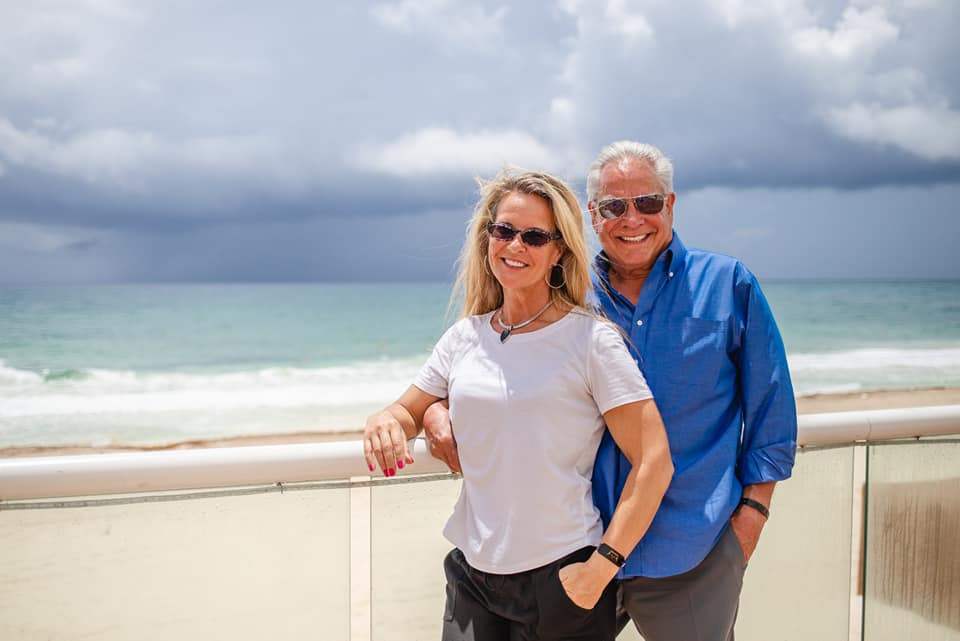 As Phil approaches his 79th year, he is particularly reflective. He thinks he has never lived in a time of certainty. Has there ever been one? As an infant he lived in Berlin during the Soviet blockade. By the time he returned to the United States the Korean War had begun. Within two years the war in Vietnam had begun. Then there was Iraq, Afghanistan and the continuing conflict in the Middle East, Israel and Palestine, Sudan, etc. War, death, huger, poverty, displacement, weather and geologic disasters, and events generally considered as bad news capture and hold the headlines. And, of course, there was uncertainty of what his country would be like in the coming years. Yet he remains optimistic. He truly believes there is an abundance of possibility, including the possibility of helping others whose experience of life is not one of possibility or opportunity. That he is an optimist does not mean he is not mindful that a vast number of people around the world are faced with extreme hardship - much of it life or death hardship. Phil remains optimistic as a matter of choice. He has some evidence that there is good reason to make this choice. Yes, the blame game seems to continue to run at full force in most government and political institutions that people and the world rely upon in times of trouble. However, the individual human response in the face of “bad news”, driven by people's desire to help, was, and is, magnificent. The same may be said of the collective effort of people who come together in their desire to help through their community institutions. And, corporate good citizenship, although often unrecognized or dismissed among the growing legions of cynics, is equally commendable. One specific thing he is optimistic about for himself, while less certain for many people in North America, people upon whom much of the world relies for help, is the experience of "Being Alive." Increasingly, Phil believes, people "dim down" in response to the pressures and stresses of living in the 21st Century, a time of rapid communication, information overload and globalization. By "dim down" he means showing up less fully, not shining as brightly, holding back, playing it safer or smaller in life, withdrawing into self, cocooning, feeling increasingly dispassionate about my life and the people, or some of the people, in life. Dimming down carries huge self-fulfilling prices. When a person is in resistance to the way one thinks life is, people often think showing up really big (consistently expressing who they are, and what is most important to them, over time) will worsen the situation. Maybe a person does not like the way work is going, or their relationship, or life with their family. Maybe a person is lacking a sense of purpose and says to themself, "I am doing okay and I wonder what life is all about, how I fit in and how I create more meaning in my life”. Regardless of what a person thinks the root of their resistance is, the longer a person stays in resistance the more they tend to believe the nexus of a solution is outside of themself; A person feels increasingly victimized and powerless not doing what it takes to change their state of mind, or the situation. As if the experience of loss of power is not enough, dimming down a person creates more and more distance from the very people they care about the most. A person in this state of mind begins to do and give less than their best in most of their endeavors. Pretty soon the automatic response is to withdraw even more - to withdraw from others and from life and from all of the possibilities that exist. What follows is a sense of numbness - a feeling of being less alive, and then even less alive, and a downward spiral continues until a person says, "Enough!" When Phil dims down and experiences a diminished sense of aliveness, his unconscious automatic response is to find a way to feel more alive - as is mine. In some cases, such responses involve destructive choices and behaviors that result in temporary feelings of aliveness, but also result in life working less well than before; This is the case if I allow my automatic responses to run me. The better I know myself the more effective I am at not letting automatic responses take on a life of their own. Another way of thinking of this is that when I do not feel sufficiently alive, I often unconsciously invite some kind of "crises," some big problem, into my life - unless I know better. I make choices and engage in behaviors the results of which are of crises proportion - unless I am mindful and make smarter choices knowing myself and being aware of my options. In handling these problems, which, like most people I eventually find a way to do, I feel more alive. Crises averted, it makes sense that I feel better about myself and my life. Unfortunately, the feeling is very temporary, as I have done nothing to address what it is about me in the first place such that I began to dim down. Crises averted, I'm right back where I started - unless I know better. Back to you and me and my optimism. We (you and I) are in intellectual and emotional possession of everything we need to experience, in significantly increasing degrees, "Being Alive." You and I do not need more information unless we really don't know ourselves well enough to make a strategic pivot! If you are a graduate of 21st Century Leadership, you have subscribed to the idea that your purpose and others' purposes, whether they know it or not, is to contribute, to strengthen the human condition, to add the greatest value possible. You understand the way to do this is to fully express who you really are at your core. You have answered the question, "Who am I and what is most important to me," at 21st Century Leadership by Extraordinary Learning. You know the felt experiences you must create in your life in order for you to feel fulfilled, and you understand the necessity of having constructive strategies in place to do so. You have chosen a "Big Game" to play in life - an arena, vehicle or frame in which you spend yourself fully to fulfill your purpose. Most of the time you have a strong experience of your own and others' ability. Most of the time you take ownership for your thoughts, feelings and results. You have strong and fixed intention - intention to embrace life and experience "Being Alive," rather than to resist life, or portions of it, and dim down. You are committed to living life "above the line." So here, at a time that uncertainty runs rampant, I encourage and invite you to turn the page on negativity and cynicism. Wipe the slate clean. Give yourself and others in your life the gift of relegating the past to where it belongs - the past. You need no one's agreement or permission to do this. Just let it go. I invite and encourage you to join me in Phil and me in our optimism. Join us in our belief that the way each of us shows up in life matters - that "Being Alive" is a gift and contribution. It is at the heart of whatever each of our legacies is to be. And join us in our belief that the way to help people who do not experience the possibility and opportunity that exists in the world begins with choosing to live life fully, to fully express who we are, to show up bigger, to "Being Alive." As a graduate of any of our leadership courses I believe you have made a commitment to lead in your life. This means to lead yourself, to lead in you workplace, to lead your family and friends and to lead in your community. When the direction any of these are headed is different from your vision, you have a leadership opportunity. Please join us in our pledge to experience all the aliveness we know how to create and to lead our people in such a way that our world is a better place. Settle for nothing less, explore what is most important to you and what you are making your life about going forward since 21st Century Leadership, or our Advanced Leadership and Facilitation Development Program, or one of our custom-designed leadership courses. Lead on!
0 Comments
As much power as the conscious mind has to produce the results I say I want, the subconscious is even more powerful for the fact it is what I do not know about myself that controls me. The conscious and subconscious work in collaboration with one another to produce net results. And net results are sometimes different than intended results.
Much like raising children, we may do our best to nurture, to be a positive influence, to plant seeds in an effort to have things go well. My net results are an expression of what I have control over in collaboration with what I do not have total control over. It is up to each of us to train our subconscious mind using our conscious mind to trigger background processes aligned with what is truly most important. Our subconscious pretty much works on auto-pilot. The information each of us feeds our subconscious mind makes a difference. In my ideal world people are consciously feeding their subconscious mind with positive words of wisdom, affirmations reflecting what they are moving toward, kindness, enthusiasm and generosity of spirit. 2024 is a clean slate. The past is the past. I encourage you all to give it your best shot, as I am right now, making the most of 2024. Tips for overriding a subconscious thought that may not be working in your favor: 1) Mindfully live in the moment, letting go of the past; 2) Go forth with optimism, enthusiasm and fortitude; 3) Feed the subconscious with a vision worthy of moving toward. I wish you the happiest of new years! #21stCenturyLeadership, #extraordinarylearning, #ownership, #leadership
It Simply Is Not A Cookie Cutter AnswerI believe one of the most perfect times to lead is when I am challenged to stay in the game - when I desire change in my current arena. In my experience, too many people want to run (and do run) when the going gets tough. Rather than quitting, this is, again, the perfect time to lead, to express myself consistent with my values, to show up even bigger and to make an even more significant difference.
“Leadership is congruent self-expression that creates value.” The time to move toward something new, to stretch and move on to a different arena in which I imagine I may experience new or different challenges and opportunities, is when I have everything working in my current endeavor. Of course, when I have everything going well where I am, my opportunity to mentor and grow other leaders, and to contribute even more, is at its peak. Perhaps doing this, as opposed to moving to a new arena, is my next brass ring. Conversely, leaving when I am in resistance to my results, whatever they are, is a sure indicator that something about me (and it is always about me) is unresolved. For those who subscribe to and understand the notion that, “As a leader I know I am the source. I own my results”, the obvious dilemma is that I am almost certain to recreate results similar to the ones to which I am currently in resistance wherever I go, at least until I resolve what I judge as “not working”. I think this idea is well captured in this parable: "In ancient times, a King had a boulder placed on a roadway. Then he hid himself and watched to see if anyone would remove the huge rock. Some of the King's wealthiest merchants and courtiers came by and simply walked around it. Many loudly blamed the king for not keeping the roads clear, but none did anything about getting the stone out of the way. Then a peasant came along carrying a load of vegetables. Upon approaching the boulder, the peasant laid down his burden and tried to move the stone to the side of the road. After much pushing and straining, he finally succeeded. After the peasant picked up his load of vegetables, he noticed a purse lying in the road where the boulder had been. The purse contained many gold coins and a note from the king indicating that the gold was for the person who removed the boulder from the roadway. The peasant learned what many of us never understand. Every obstacle presents an opportunity to improve our condition.” I believe a leader who is truly skilled at the emotional craft of leadership knows when it is time to lead (to create change consistent with her vision, when it is time to follow and/or when it is time to manage (to keep the game going smoothly within the existing structure). Wise leaders are not always leading. To me, following one of my people who is headed where I want to go makes great sense. Not only may I experience ease, I may learn a great deal about leading. The level of emotional intelligence required to be an exemplary leader, one who others want to follow, is learned and earned in large part through mastering how well I follow. Leadership is not merely a collection of skills, nor title or position. In its purest form, leadership is a mindset. When I am leading, I want all my followers wearing the mantel of leadership, including making appropriate choices about when to lead, manage or follow. I also want them to be discerning about the difference between leading to create (including moving toward something new or different) and rebelling in resistance to their results. Part of the responsibility of a leader is to distinguish between the two and to help others do so. There is no cookie cutter answer for everybody. “What next,” is an important question for leaders to ask and answer at several different junctures in their lives. There are many approaches for making such a decision. When you think you have arrived at such a juncture, please remember Phil and I remain available to help you differentiate. In advance of each customized in-house facilitation that Phil and I design and lead, I send both the executives of the organization and those participating in the program a questionnaire to determine what results are the most important take aways. Without exception, one common theme is that the executives want their people to take more initiative rather than seek permission and emerging leaders want the executives to do less “hand holding”. They all want the same thing yet both groups are stuck in their most comfortable and “safest” way of doing their jobs.
I believe one of a leader's primary jobs is to grow other leaders. This is accomplished through training, coaching and mentoring, all of which are for naught unless I hold emerging leaders able. With regard to holding people able, too often I see "veteran" leaders jumping in to help emerging leaders who might be slow out of the gate rather than being on standby for when they ask for help. This tactic is the same as smothering a plant with a plastic bag and stunting the plant's growth. In my opinion, regular handholding is unnecessary and usually harmful. Emerging leaders miss out on what would otherwise be learning opportunities and growth experiences. At the same time, I am not focused on what is most important in my leadership roles, my highest and best uses. Holding others less than able occurs in a variety of forms - withholding feedback, withholding invitations to participate at higher levels, providing solutions to challenges rather than allowing others to find their own answers, and sometimes completing tasks or assignments for others, to name a few. The prices that accompany this kind of behavior include emerging leaders losing confidence, dimming down, unconsciously withdrawing, becoming less productive, and often feeling victimized. In my experience, people are, typically, more knowledgeable, more creative and more resilient than others assume. Given appropriate training and resources, I think people are capable of exceeding their own and others' expectations. I let people complete assignments, particularly in ways other than how I would do them. I believe people complete assignments, particularly in ways other than how I would do them. I believe people learn from missteps as well as from successes. Holding others as able, as capable, I am providing extraordinary leadership growth opportunities. Growing other leaders requires invitation on my part. This, I believe, is an exercise in consciousness. I invite my people to give and ask for feedback, to ask for help in finding their own solutions, to ask to participate at higher levels with more complex assignments and to challenge themselves to perform at their best. Once I think I have done this, I do it again. And again. For the two of us, our friends and clients are equally divided between Canada and the United States. Each year at this time we happily and gratefully celebrate the freedoms we enjoy by acknowledging Canada Day (July 1) and Independent Day (July 4). We are also mindful of those within and without our countries who are deprived of the freedoms we enjoy.
We hope your holiday is rich and full. We ask that you honor the freedom you have by spending yourself constructively and in ways that honor your purpose of contributing to the human condition. Each of us is, at our core, unique. While many people may share similar strengths, talents, drives and "essential energy", we all express them in our unique ways. Over time, it is the full expression of this uniqueness that we believe is a person's contribution to the world. An example is Dr King's description of himself as "Drum Major For Justice." The drum major of a marching band leads the band by setting the direction and the tempo. In most parades, the band leads the parade. Based on the results in his life, it is easy to conclude Dr. King's self-assessment was highly accurate. In many arenas this is the way he expressed himself - from the pulpit to leading the parade for justice in the civil rights movement and the quest for peace during the Vietnam era. We are really attracted to the idea and visual image people approaching life as the leader of the parade for what is most important to them. John Naisbitt, the highly respected author of the 1982 mega bestseller, Megatrends, said "Leadership involves finding a parade and getting in front of it." Graduate of 21st Century Leadership have all the information anyone might require to find their parade. They have "done the work" to assess with a high degree of accuracy who they are at their cores and what matters most to them. They are connected with their desire to contribute. And, unlike most people, they have an elevated sense of ownership; they are more skilled than most at avoiding the victim trap. During the first week of July, when you and yours are celebrating your freedoms (and maybe even watching a parade), we ask you to take a moment and think about the extent to which you are consciously leading your parade. Are you connected with who you are at the core and fully expressing that part of yourself? Is your frame on your life big enough so that most of what you do furthers your greater purpose - moves your parade down the road? Are you so wrapped up in juggling day-to-day life that you are about many things rather than the one thing that matters the most, your parade? Lori and I know, from our own experience and from the experience of most 21st Century Leadership graduates, how easy it is to become disconnected from the very ideas, information, ground and motivations that are most important if one is to show up fully in life - to contribute fully and to create a rich and fulfilled experience in the process. If you have the thought, or if your results reflect, that you have dimmed down and are on a treadmill without a strong sense of purpose, let us know. Our parade of learning, growing and leading has room for you. The only thing in your way is your thought that something is in your way. "Our lives begin to end the day we become silent about things that matter." - Martin Luther King, Jr. 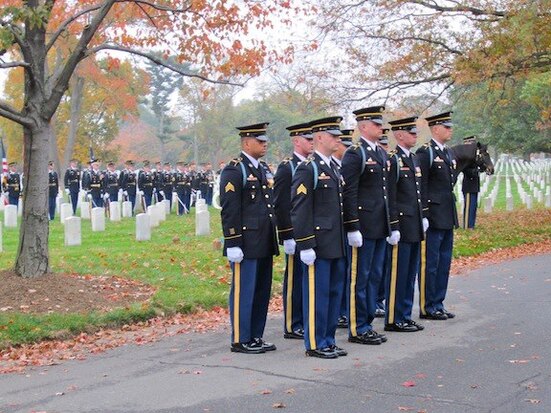 Memorial Day was recently recognized in the United States. The last Monday of May each each year in the United States is a day that commemorates the men and women who died while serving in the American military. Phil grew up in a military family. His father was a career military officer and a veteran of World War II. It is estimated that some 60 to 72 million people died in World War II, of which some 25 million were in the military. Phil was an Army Officer and a Vietnam veteran. He and I, like so many others, attache a great significance to Memorial Day. We are mindful of those who have served and died and are still serving, giving their lives in service. We are both mindful of their families and friends. Some years past the two of us traveled to Pennsylvania to visit Phil's father, then 92, now deceased. WE drove to Washington, D.C., to visit the graves of his first wife, his mother, and his father's second wife - Phil's stepmother - at Arlington Cemetery. We also visited the National WWII Memorial, opened in 2004, which Phil's father had never seen. Phil and his father share, along with likely so many military veterans with whom Phil grew up and served, with whom is father grew up and served - the following sentiment expressed in President Roosevelt's address on Flag Day in June 1942. This sentiment is no doubt timely for so many: Citing part of the prayer by poet Stephen Vincent Benét, he said: "Our earth is but a small star in the great universe. Yet of it we can make, if we choose, a planet unvexed by war, untroubled by hunger or fear, undivided by senseless distinctions of race, color or theory. Grant us that courage and foreseeing to begin this task today that our children and our children's children may be proud of the name of man. The spirit of man has awakened and the soul of man has gone forth. Grant us the wisdom and the vision to comprehend the greatness of man's spirit, that suffers and endures so hugely for a goal beyond his own brief span. Grant us honor for our dead who died in the faith, honor for our living who work and strive for the faith, redemption and security for all captive lands and peoples. Grant us patience with the deluded and pity for the betrayed. And grant us the skill and the valor that shall cleanse the world of oppression and the old base doctrine that the strong must eat the weak because they are strong. Yet most of all grant us brotherhood, not only for this day but for all our years-a brotherhood not of words but of acts and deeds. We are all of us children of earth-grant us that simple knowledge. If our brothers are oppressed, then we are oppressed. If they hunger, we hunger. If their freedom is taken away, our freedom is not secure. Grant us a common faith that man shall know bread and peace-that he shall know justice and righteousness, freedom and security, and equal opportunity and an equal chance to do his best, not only in our own lands, but throughout the world. And in that faith let us march, toward the clean world our hands can make. Amen." Phil and I hope that you, too, share this sentiment, that you lead in this direction, that you lead toward what you want rather than move away from what you do not want. 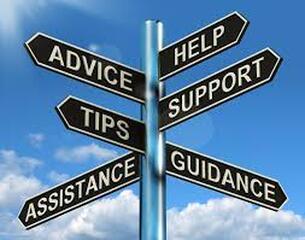 Phil and I are heavily invested in the success and well being of graduates of Extraordinary Learning courses. We hold each graduate as one of “our people” and we have formed bonds of friendship with most. In addition, each graduate is a reflection of the ideas we promote and the work we do. In that regard, our graduates are the only advertising we do. To these ends, Phil and I spend considerable time following up with graduates to offer encouragement and support. Sometimes it is a check-in email with a group that attended a course together, sometimes a message to a specific person, often a phone call or personal meeting. We also have well-developed instincts about who may be struggling a bit (or a lot). When we don’t hear from someone in response to a message, when we hear indications from a third party and when posts on social media like Facebook may be read to believe someone is feeling particularly challenged, we make a specific point of reaching out to help and encourage that person or to assist that person in finding the support and help that is appropriate for his or her situation. All too often, after some time has passed, one of us receives a response like this: “Hi, I’ve been thinking about writing you but don’t feel good about doing that unless I have something good to share.” When I receive a communication like this, I am clear I have been less effective than I want to be in promoting the notion that part of what makes a leader effective is the way that he or she addresses inevitable setbacks, downturns, challenges, and “failures”, both professional and personal. One thing that distinguishes the most effective leaders in the face of these situations is that they refuse to label them as “bad news” – information not to be shared with the very people who care about them and want to help. They understand that intellect, willpower and time alone are not viable solutions. Rather, even at the risk of feeling small, embarrassed, inadequate and the like, effective leaders turn to others and seek out help and support. These are choices consistent with the “tag line” for 21st Century Leadership: “Leadership Is Primarily An Emotional, Rather Than An Intellectual, Craft.” My response to those who do not ask for help and are willing to only be know for the “good news” is contained in the following parable: A little boy was having difficulty lifting a heavy stone. Just then his father came along. Noting the boy’s struggle, he asked, “Are you using all your strength?” “Yes, I am,” the little boy said impatiently. “No, you are not,” the father answered. “I am right here just waiting, and you haven’t asked me to help you.” There is much evidence, both anecdotal and scientific, that most people want to help and derive pleasure from doing so. Phil and I are among them. If you are having a hard time, use all of your strength – ask for help 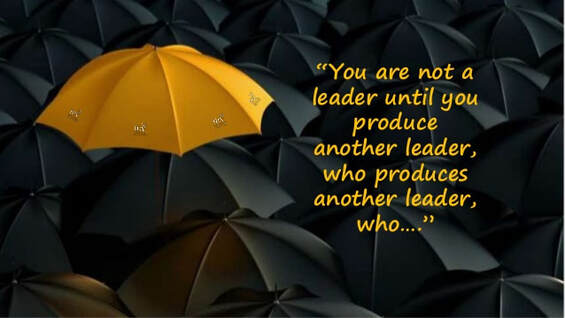 In advance of each customized in-house facilitation that Phil and I design and lead, I send both the executives of the organization and the emerging leader participants of the course a questionnaire to determine what results they most want to take away. Without exception, one common theme is that the executives want their people to take more initiative rather than seek permission and emerging leaders want the executives to do less "hand holding". They all want the same thing yet both groups are stuck in their most comfortable and "safest" way of doing their jobs. I believe one of a leader's primary jobs is to grow other leaders. This is accomplished through training, coaching and mentoring, all of which are for naught unless I hold emerging leaders able. With regard to holding people able, too often I see "veteran" leaders jumping in to help emerging leaders who might be slow out of the gate rather than being on standby for when they ask for help. This tactic is the same as smothering a plant with a plastic bag and stunting the plant's growth. In my opinion, regular hand holding is unnecessary and usually harmful. Emerging leaders miss out on what would otherwise be learning opportunities and growth experiences. At the same time, I am not focused on what is most important in my leadership roles, my highest and best use. Holding others less than able occurs in a variety of forms - withholding feedback, withholding invitations to participate at higher levels, providing solutions to challenges rather than allowing others to find their own answers, and sometimes completing tasks or assignments for others, to name a few. The prices that accompany this kind of behavior include emerging leaders losing confidence, dimming down, unconsciously withdrawing, becoming less productive, and often feeling victimized. In my experience, people are, typically, more knowledgeable, more creative and more resilient than others assume. Given appropriate training and resources, I think people are capable of exceeding their own and others' expectations. Letting people complete assignments, particularly in ways other than how I would do them, learning from missteps as well as from successes, provides extraordinary leadership growth opportunities. Growing other leaders requires invitation on my part. This, I believe, is an exercise in consciousness. I invite my people to give and ask for feedback, to ask for help in finding their own solutions, to ask to participate at higher levels with more complex assignments and to challenge themselves to perform at their best. Once I think I have done this, I do it again. And again... 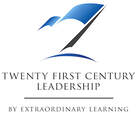 In my view, 2020 was a tough year My experience is that, in some regards, the start of 2021 is not much better. I think an incredible number of people, families, businesses, communities and countries require a lot of help. One of the foundational ideas of all Extraordinary Learning courses, and particularly 21st Century Leadership, is that people want to help. One way to measure the accuracy of this idea is to ask yourself, “Am I a person who wants to help?” I’m certain you answered in the affirmative, even if you are aware of times that you elect to spend yourself in some other way. The proof of this notion is especially obvious to me during this pandemic. And, increasingly, there is scientific evidence that people are wired to be kind: that those who help others are only doing what comes naturally and that there is biological basis for human cooperation. The people Lori and I meet through the work we do (this probably means you) are sterling examples of this idea. As leaders they are engaged, in their work, with family and friends, and in their communities, to make lives richer and to produce results that add value. They help, and they spend a lot of time doing it. One of our deep pleasures is the knowledge that you, with all the talent and skill and caring you have, are out there helping. But, there’s a rub. Many of the leaders we meet are not very willing to allow themselves to be helped and have not developed the all important skill of letting others help them. In my experience this occurs for a variety of reasons easily overcome with sufficient intention and consciousness. Those reason include a skewed sense of ownership, untethered self-sufficiency, stubborn individualism (I do it better – the right way) and subtle and/or deep-seated feelings of unworthiness, to name a few. In life, reasons pale in comparison to results. Some results, I think, are important enough that someone resistant to allowing help might change the way he or she thinks and feels about it. People feel good about themselves and their lives when they help, just like you do when you help. If you are a person who is not very open to allowing others to help you, you are depriving them of rich and meaningful experiences. Not only do you pay a price, so do the very people around you who are “your people”. More importantly, if you are participating in life in ways that are big enough for you (if you are not playing life safe and small and just settling for less than you might create or contribute), help is imperative. In fact, the litmus test for whether you are living up to your own greatness and potential is whether you require help to manifest your intention. If you don’t, you are simply coasting. In this difficult time for most, as you go about sharing yourself in helpful ways, Lori and I encourage you to resolve and practice, now and throughout this year, to increasingly allow others to help you. As a leader, you have much to offer and that contribution is exponentially magnified as you let the people around you do what they naturally want to do. |
|
